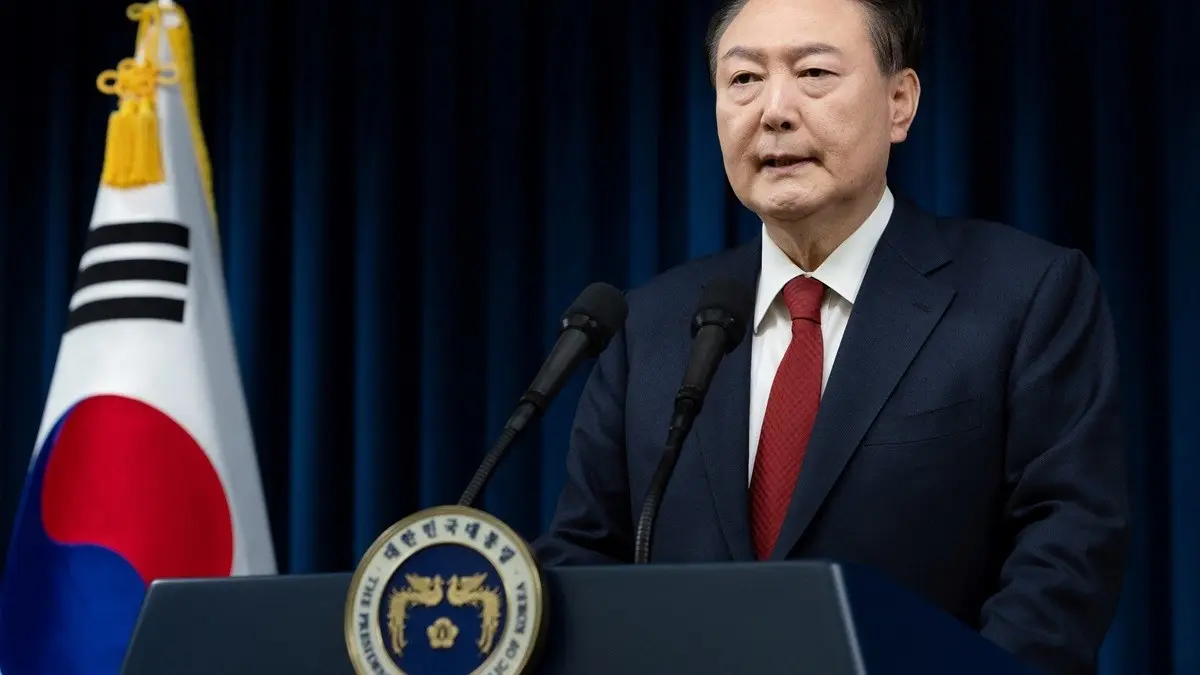Lawyers for South Korea’s impeached president announced Thursday that he will refuse further questioning after being detained by anti-corruption officials investigating his recent declaration of martial law. They maintain that the investigation is illegal and have filed legal challenges against it.
President Yoon Suk Yeol invoked his right to remain silent during more than 10 hours of questioning on Wednesday at the Corruption Investigation Office for High-Ranking Officials (CIO) headquarters.
His detention followed a large-scale law enforcement operation to apprehend him at the presidential residence in Seoul. Investigators are now expected to pursue a formal arrest warrant.
The anti-corruption agency, which is collaborating with police and military investigators to determine if Yoon’s declaration of martial law constitutes attempted rebellion, has 48 hours to either seek a court order for his arrest or release him.
Yoon’s legal team disputes the validity of the detention warrant issued by the Seoul Western District Court and has petitioned the Seoul Central District Court for his release.
Timeline for Legal Proceedings
The court is reviewing Yoon’s petition, pausing the arrest warrant’s timeline. This process, which may take up to 48 hours, could include a hearing at the Central District Court. Records indicate that a hearing is scheduled for 5 p.m. Thursday, suggesting a decision could follow later in the evening.
Political Crisis and Impeachment
Yoon plunged the nation into its most significant political crisis since democratization in the late 1980s by declaring martial law on December 3 to address legislative gridlock.
Troops were deployed around the National Assembly, but lawmakers managed to overturn the measure within hours. The opposition-dominated assembly impeached Yoon on December 14, accusing him of rebellion.

Impeached South Korean President
His presidential powers were suspended, and the Constitutional Court is now deliberating whether to formally remove him from office or reject the charges and reinstate him.
Resistance to Investigation
Yoon has resisted efforts to investigate his actions during the December 3 chaos. For weeks, he ignored summonses for questioning and remained in his official residence to evade detention.
His lawyers cited legal protections for locations tied to military secrets, arguing that the anti-corruption agency lacks authority over rebellion allegations.
During one attempted detention, the presidential security service barricaded the residence. Yoon was ultimately apprehended after a second raid involving hundreds of investigators and police.
In a video recorded before his detention, Yoon criticized the investigation, claiming that “the rule of law has completely collapsed in this country.” While he disputed the agency’s authority to investigate, he accepted detention to prevent potential violence.
Next Steps
The Constitutional Court denied a request from Yoon’s lawyers to delay a hearing on his impeachment case, though Yoon retains the right to attend, even while detained. If a court approves a formal arrest warrant, the anti-corruption agency could hold him for up to 20 days to transfer the case to public prosecutors for indictment.
If indicted for rebellion and abuse of power, Yoon could remain in custody until a verdict is reached, typically within six months. According to attorney Park Sung-bae, South Korean law stipulates that a rebellion leader could face life imprisonment or the death penalty if convicted.
